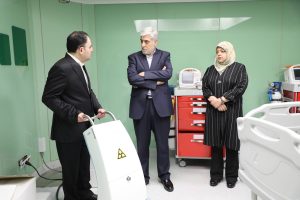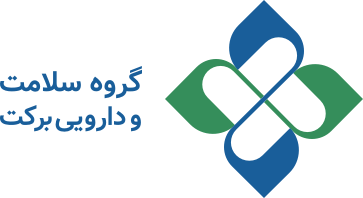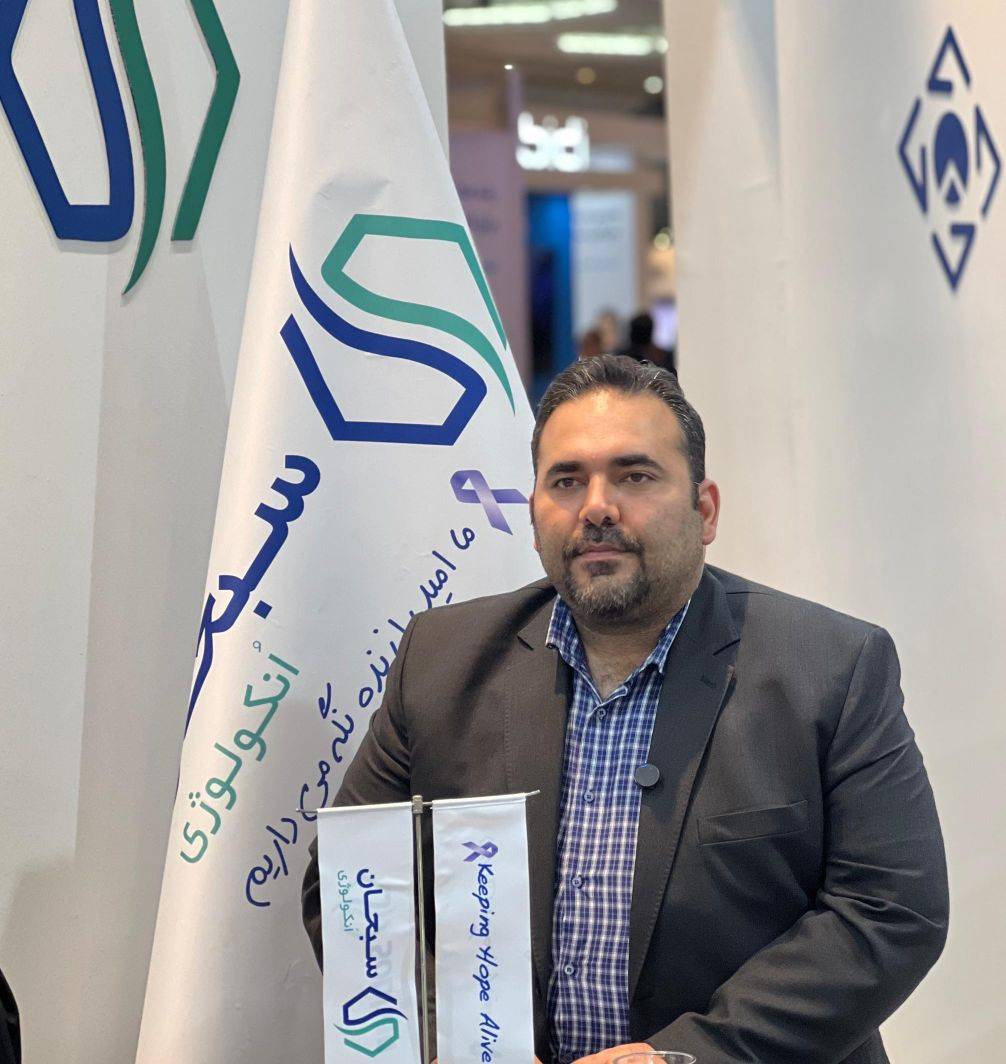
Utilizing most advanced technologies in hazardous drug production
Barekat Health and Pharmaceutical Group: The 9th International Pharma and Related Industries Exhibition (Iran Pharma 2024) took place in October with a significant presence of domestic and international pharmaceutical and healthcare industry professionals. Among the participating companies, Barekat Pharmaceutical Group made a notable impact, participating as one of the key players in the pharmaceutical industry with 17 of its 26 subsidiaries. Over the course of the three-day event, these companies introduced new products and advanced technologies aimed at enhancing domestic production and strengthening pharmaceutical exports, while also sharing the latest information with participants.
During the exhibition, Sobhan Oncology Pharmaceuticals ,one of the most modern and advanced anti-cancer drugs manufacturing complex in the Middle East, specializing in the production of anti-cancer drugs, held over nine educational panels on various topics related to the pharmaceutical industry.
In line with the significance of IranPharma as one of the region’s most important pharmaceutical events, we conducted an interview with “Dr. Hamed Mohammadpour”, Sobhan Oncology CEO, which follows below.
* What is the role of Barekat Pharmaceutical Group in the development and production of innovative advanced drugs?
Barekat Pharmaceutical Group, as one of the pillars of the national pharmaceutical industry and a leader in technological drug production, has undoubtedly played a crucial role in this regard. From a technological standpoint, companies like “GenSazeh,” “Cell-Tech,” “Bioson,” and “Shafa” are outstanding examples of innovative entities.
Additionally, companies like Sobhan Oncology, which specialize in cancer drugs, hold a special place in addressing the country’s pharmaceutical needs. The main goal of these companies is to produce innovative products that not only address patient issues but also reduce the country’s pharmaceutical shortages. Accordingly, we leverage the most advanced technologies to produce drugs that fully meet the domestic pharmaceutical market’s needs.
*Recently, Sobhan Oncology launched several new products, which garnered significant media attention. Can you provide details on these new products and their functions?
We successfully unveiled ten new products in five different categories at Sobhan Oncology in July in the presence of Engr. Sayyid Parviz Fattah, the head of the Executive Headquarters of Imam’s Directive, and the managers of the Barekat Health and Pharmaceutical Group. These products include Ibrutinib capsules (for treating leukemia), Osimertinib (for treating lung cancer), Enzalutamide (for treating prostate cancer), Caspofungin (an anti-fungal drug), and Olaparib tablets (ovarian cancer drug), among other anti-cancer drugs. Some of these drugs are being produced for the first time in the country, while others are being produced by our company for the second time.
By the hard work and dedication of our skilled and capable team, we successfully integrated these drugs into domestic production. We hope that by fulfilling our company’s motto, “Keeping hope alive,” we can help cancer patients improve their quality of life and take a small step towards their recovery.
*What achievements has Sobhan Oncology made in recent years, and to what extent has it contributed to self-sufficiency in the national pharmaceutical industry?
Sobhan Oncology is recognized as one of the leading producers of anti-cancer drugs in the Middle East. Over the past 14 to 15 years of production, the company has consistently worked to introduce high-quality, new drugs and play a significant role in the national pharmaceutical market.
Also, this company was able to play a significant role in providing Remdesivir, Favipiravir, etc. to patients during critical times of the country, such as the Corona virus.
Sobhan Oncology Company, as the fourth export company in the pharmaceutical industry, played a significant role in bringing foreign currency to the country and transferring Iranian quality products to international markets two years ago.
* Considering the significant progress, the company has made; you must have faced challenges along the way. What solutions have you considered for addressing these challenges?
To tackle challenges and improve company performance, we can categorize them into two groups: external and internal challenges. The most significant external challenges currently facing the pharmaceutical industry, particularly in oncology drugs, include price regulation issues with the Iran Food and Drug Administration. Challenges related to currency allocation and exchange rate fluctuations also directly impact this matter.
In the area of oncology drugs, we are highly dependent on patient insurances and the drugs are mainly distributed in public pharmacies. With the non-payment of arrears of insurance amounts by the government to insurance organizations, it affects the liquidity cycle of the pharmaceutical industry, including: insurance organizations, universities of medical sciences, pharmacies, and broadcasting companies, and this issue leads to problems in the reimbursement process.
Therefore, two major challenges in the pharmaceutical industry, especially in oncology drugs, can be identified: first, price regulation by the Food and Drug Administration, and the other is the late payment of the distribution companies in this field.
These issues naturally impose a significant burden on companies. A secondary challenge, stemming from the first, is the extended periods for receivables collection. Generally, sales in government pharmacies are covered by insurance, and the repayment periods for oncology drugs have significantly increased. These factors have made internal operations within the company highly complex and challenging.
* What are the company’s vision and short- to mid-term plans ?
Over the next five years, our primary goals at Sobhan Oncology will be focused on product registration and diversification. This is why this year we participated in the Iran Pharma exhibition with the slogan “From Research to Treatment, Each Drug a New Hope.”
We introduced ten product doses across five products and hope to launch five to seven more products in twelve to fourteen dose forms by the end of the year. This plan will continue into 2025, and we hope to introduce the latest drugs into the Iranian pharmaceutical market.
During this five-year period, diversifying drug forms, expanding production lines, and introducing new drug formulations will be among the company’s primary goals. With God’s help and the support of the Barekat Group, we hope to achieve these objectives.
-
Barkat Group specialized meeting
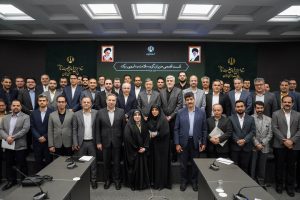
-
Safa Appointed as Barekat General Director
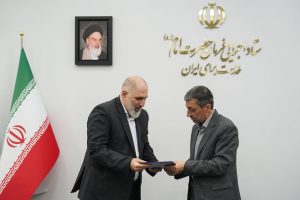
-
Barekat Health & Pharmaceutical Group at the 10th Iran Pharma Exhibition
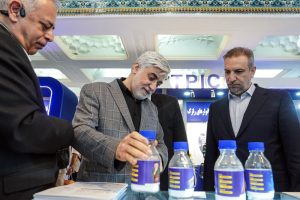
-
Ali Safa visits Sobhan Oncology & Sobhan Darou
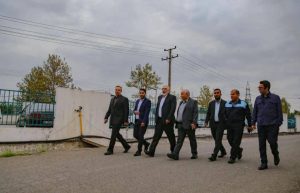
-
Pirsalehi & Safa visit Saman Daroo 8 Knowledge-based Company
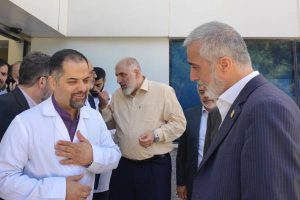
-
Barekat Managing Director Visits Samen Pharmaceutical Company
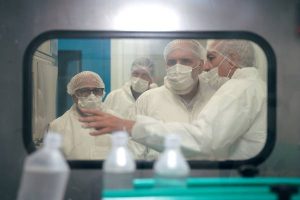
-
Honoring Pharmacists’ Day
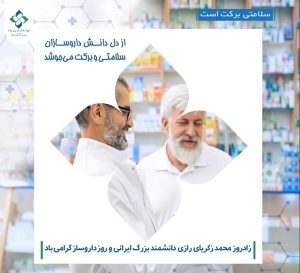
-
Barekat Top Executives Visiting to Barekat Hospital
